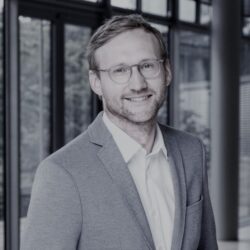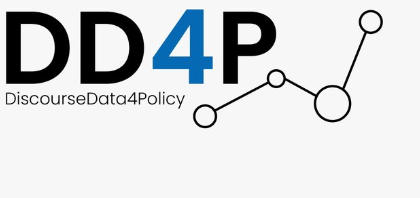In the course of the new funding program of the “HHU Future Groups” of the Heinrich Heine University, the rectorate has selected three innovative research ideas to support them financially for a maximum of three years.
With the project “DiscourseData4Policy” led by Prof. Dr. Stefan Dietze, a research group with DIID participation prevailed in the competition and is working on AI-based understanding of online solidarity discourses for evidence-based policy making. Stefan Dietze explains, “For evidence-based policy making and its public communication, it is necessary to understand social discourses. How do they depend on social and media events? Especially in dynamic fields of action such as the Corona pandemic, migration or climate policy, data from social media help to identify social trends, opinion patterns and behavioral intentions. Our interdisciplinary project uses methods from AI and machine learning to make such online discourses on Twitter understandable and usable. Interactions between social events, political measures and their social acceptance can thus be better understood.”
Contact
Prof. Dr. Martin Mauve
Computer Science

Prof. Dr. Martin Mauve has headed the Chair of Computer Networks and Communication Systems since 2003. Since 2015, he has been Dean of the Faculty of Mathematics and Natural Sciences at HHU-Düsseldorf. His research interests include secure and robust distributed systems, computer-aided group work, and the realization of participation using Internet technology. A particular focus is on highly scalable support for discussion and decision making.
Within DIID, his interests include innovative concepts for dialog-based online participation processes and their technical implementation in functional systems.
Projects
Contact
Prof. Dr. Frank Marcinkowski
Communication Studies

Frank Marcinkowski has been Professor of Communication and Media Studies (KMW I) at the Institute of Social Sciences at HHU-Düsseldorf since October 2017. His research and teaching areas include communication and public sphere theories, political communication, and the social consequences of media developments.
At DIID, he is interested in the social perception, evaluation and opinion formation of digitalization.
Contact
Jun.-Prof. Dr. Tobias Escher
Board, Computer Science, Political Science, Sociology

Tobias Escher leads a BMBF-funded junior research group investigating the effects of participation processes on the quality and legitimacy of political decisions, especially in the context of the transformation to sustainable mobility in the local context. Previously, he supervised the DIID as well as the NRW Forschungskolleg Online-Partizipation at the HHU-Düsseldorf as scientific coordinator. He is a social scientist and holds a PhD from the Oxford Internet Institute at the University of Oxford. He can also draw on his basic knowledge of computer science when assessing the possibilities and limits of digitization.
His research focuses on the evaluation of political participation online and offline. In particular, he addresses the question of the extent to which citizen participation contributes to higher quality and legitimacy/acceptance of political decisions. He has developed a teaching module on the theory and practice of online participation, from which, among other things, a project on student participation in teaching has emerged.
Photographer: ©Tilman Schenk
Projects
Contact
Dr. Christopher Starke
Alumni, Communication Studies

Together with colleagues from HHU-Düsseldorf, Christopher Starke leads the two externally funded projects ‘Discourse Data for Policy’ and ‘Responsible Academic Performance Prediction’. He has been employed as a post-doctoral researcher at the Amsterdam School of Communication Research and at the interdisciplinary research network Human(e) AI at the University of Amsterdam since 2021.
In his research, he investigates the impact of Artificial Intelligence on democracy. This includes the following research areas: Perceptions of fairness, legitimacy, and technocracy in relation to algorithmic decision-making systems in the public sector; potentials and challenges of AI to fight corruption; political consumer choices in the attention economy.


